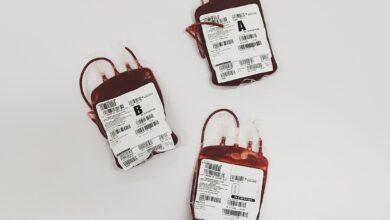
Our Doctor’s Opinion on Diarrhea
“Acute diarrhea must be clearly distinguished from chronic diarrhea.
Acute means “recently onset and of short duration”. It has nothing to do with the intensity of the symptoms.
Chronic means, in the case of diarrhea, 4 weeks or more.
The majority of acute diarrhea is harmless and can be treated very well with the advice mentioned in this sheet. However, there is a downside: acute diarrhea caused by taking antibiotics can be serious. Some acute diarrhea caused by E. coli bacteria (“hamburger disease”) as well.
In case of chronic diarrhea, a medical consultation is recommended. “
Dr Dominic Larose, M.D.
The following complementary approaches can help prevent diarrhea and relieve its symptoms, in addition to rehydration.
Complementary approaches to treat diarrhea
Probiotics (infectious diarrhea)
Probiotics are beneficial bacteria that notably constitute the intestinal flora.
The most recent research summaries agree that taking supplements of lactic acid bacteria (lactobacilli) can reduce the risk of contracting gastroenteritis of viral origin, both in children and in adults3-6,17.
Probiotics can also decrease its duration, after it has started.
Probiotics have been shown to be effective in preventing traveler’s diarrhea (tourista)15.
According to the most recent meta-analysis18, daily doses of at least 10 billion CFU (colony forming units) of Saccharomyces boulardii or a mixture of Lactobacillus rhamnosus GG and Bifibobacterium bifidus offer protection against tourista.
The authors also confirm the safety of such use.
Dosage: see our Probiotics fact sheet for more information on types of probiotics and dosage.
Contraindication: do not use without medical advice in case of weakening of the immune system due to a disease (AIDS, lymphoma) or to medical treatment (corticotherapy, chemotherapy, radiotherapy).
Probiotics (antibiotics)
The risk of diarrhea associated with taking antibiotics can be reduced with the concomitant use of probiotics, according to a meta-analysis13. These results confirmed those of previous meta-analyses7-10.
Among the species studied, only Saccharomyces boulardii, Lactobacillus rhamnosus GG and certain combinations of 2 probiotics had significant effects.
In addition, taking a Saccharomyces boulardii-type yeast during antibiotic therapy would reduce the risk of infection with the C. difficile bacterium, a possible complication of antibiotic therapy (especially in a hospital environment).
Dosage: consult our Probiotics sheet.
Psyllium (Plantago sp.)
Although it may seem contradictory, since it is also effective in combating constipation, psyllium can be used to treat diarrhea.
Indeed, as the mucilage it contains absorbs water in the intestine, it allows liquid stools to become more consistent. As psyllium also slows stomach and intestinal emptying, it allows the body to reabsorb more water.
Positive results have been obtained in people with diarrhea caused by taking certain medications or with faecal incontinence25-30.
Dosage: Take 10-30 g daily in divided doses, with a large glass of water. Start with the smallest dose and increase it until you get the desired effect. It may be necessary to increase the dose up to 40 g per day (4 doses of 10 g each).
Warnings: regular intake of psyllium may require adjustment of antidiabetic medication. In addition, the consumption of psyllium would reduce the absorption of lithium, a drug used to treat bipolar disorder.




